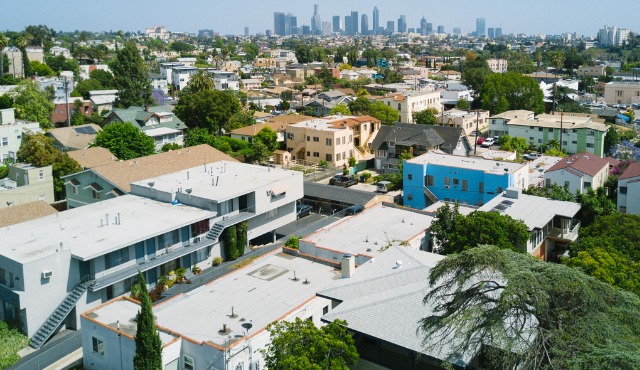By Rachelle Wilber
When it comes to roofing, most people think of the traditional pitched roof. But there's another option that's gaining in popularity: the flat roof. A flat roof is exactly what it sounds like—a roof that's completely flat (or almost flat). While they're most commonly seen on commercial buildings, more and more homeowners are choosing flat roofs for their homes as well. If you're considering a flat roof for your home, here are five things you should know before making your decision.
Less Maintenance is Required
One of the biggest benefits of a flat roof is that they require less maintenance than a pitched roof. With a pitched roof, you have to worry about things like shingles blowing off in high winds and leaves and other debris getting caught in the gutters. With a flat roof, those problems are virtually nonexistent. You'll still need to have your roof inspected and cleaned on a regular basis by professionals such as Commercial Solutions, Inc. Overall, you can expect your flat roof to last longer with less maintenance required.
More Energy-Efficient
Another big benefit of a flat roof is that they're more energy-efficient than pitched roofs. Because heat rises, a lot of heat can escape through a pitched roof in the wintertime. That means your furnace has to work harder to keep your home warm, which drives up your energy bills. A flat roof helps prevent heat loss, so you can keep your home warmer in the winter without seeing a spike in your energy bills.
Easier for Future Expansion
Pitched roofs have limited use when it comes to adding on to your home. But because flat roofs don't have a pitch, they offer more flexibility when it comes to adding an addition or even just creating an outdoor living space on your rooftop deck. So if you're thinking about expanding your home in the future, a flat roof could be the way to go.
Less Susceptible to Damage From Severe Weather
While no roof is entirely immune from severe weather damage, a flat roof is less susceptible than a pitched roof. That's because, with a pitched roof, strong winds can lift shingles and cause them to blow off—leaving your home vulnerable to water damage from rain and snowmelt. A flat roof helps prevent that type of damage because there's nothing for the wind to lift and blow away.
All things considered, there are both pros and cons to choosing a flat roof for your home. It's important to weigh all of the factors before making your decision so that you can choose the best option for your needs. If you're looking for a low-maintenance, energy-efficient and versatile option, then a flat may be the way to go.
 Rachelle Wilber is a freelance writer living in the San Diego, California area. She graduated from San Diego State University with her Bachelor's Degree in Journalism and Media Studies. She tries to find an interest in all topics and themes, which prompts her writing. When she isn't on her porch writing in the sun, you can find her shopping, at the beach or at the gym. Follow her on twitter: @RachelleWilber
Rachelle Wilber is a freelance writer living in the San Diego, California area. She graduated from San Diego State University with her Bachelor's Degree in Journalism and Media Studies. She tries to find an interest in all topics and themes, which prompts her writing. When she isn't on her porch writing in the sun, you can find her shopping, at the beach or at the gym. Follow her on twitter: @RachelleWilber








